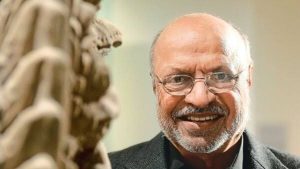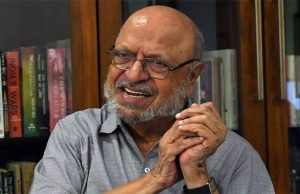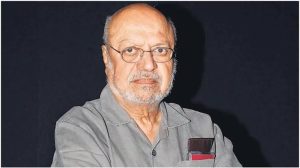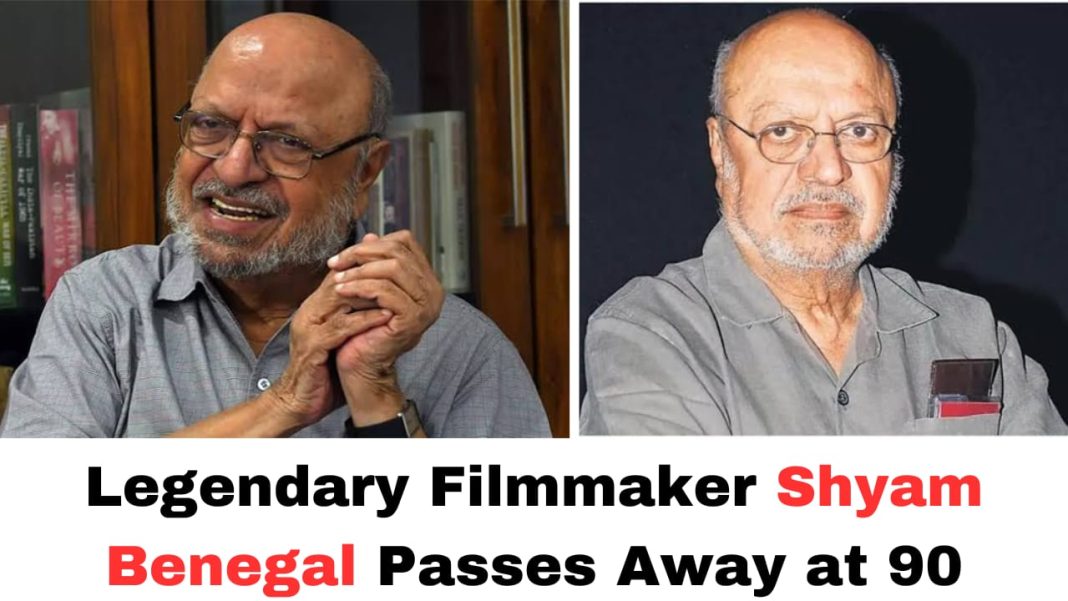Digital News Guru Mumbai Desk:
In a profound loss to the world of cinema, celebrated filmmaker Shyam Benegal passed away on December 23, 2024, at the age of 90. Known as the pioneer of Indian parallel cinema, Benegal’s demise marks the end of an illustrious era in Indian filmmaking. He had been battling chronic kidney disease in recent years, and his health had deteriorated, leading to his admission to the intensive care unit at Mumbai’s Wockhardt Hospital, where he breathed his last.

About Shyam Benegal
Born on December 14, 1934, in Hyderabad, Shyam Benegal belonged to a family with cultural roots that enriched his creative instincts. Early exposure to cinema and storytelling cultivated a passion that would define his life’s work. Benegal pursued a degree in economics at Osmania University and later worked in advertising, where he honed his skills in visual storytelling. His transition to filmmaking was seamless, driven by his desire to craft stories reflecting societal truths.
The Rise of Indian Parallel Cinema
Benegal is hailed as the father of parallel cinema in India, a movement that deviated from the formulaic Bollywood masala films of the time. His films brought a raw, unembellished portrayal of India’s socio-political realities. His debut feature film, “Ankur” (1973), was a watershed moment in Indian cinema. Featuring Shabana Azmi and Anant Nag, the film delved into themes of caste discrimination, rural exploitation, and gender inequality. It received national and international acclaim, setting the tone for Benegal’s career.
He followed up with masterpieces like “Nishant” (1975), a gripping tale of power dynamics in rural India; “Manthan” (1976), which depicted the struggles of dairy farmers and the cooperative movement; and “Bhumika” (1977), an intense exploration of a woman’s identity and agency. These films were notable for their grounded storytelling, realistic characters, and sharp socio-political commentary.

Benegal’s films introduced and nurtured a generation of exceptional actors, including Shabana Azmi, Smita Patil, Naseeruddin Shah, Om Puri, and Amrish Puri. His collaborations with music composer Vanraj Bhatia also became legendary, with scores that perfectly complemented the narrative depth of his films.
Accolades and Recognition
Throughout his illustrious career, Benegal received 18 National Film Awards, an unprecedented feat. His contribution to Indian cinema was recognized with the Padma Shri in 1976 and the Padma Bhushan in 1991. In 2005, he was bestowed with the Dadasaheb Phalke Award, India’s highest honor in cinema, solidifying his status as a national treasure.
Beyond feature films, Benegal ventured into television, creating iconic series like “Bharat Ek Khoj” (1988), based on Jawaharlal Nehru’s book The Discovery of India. This series educated and entertained millions, chronicling the cultural, social, and political history of India with unmatched depth and sensitivity.
A Legacy of Unmatched Depth
Benegal’s work transcended entertainment, serving as a mirror to society. His films tackled themes such as caste oppression, gender dynamics, economic inequality, and communalism, often sparking discussions that were ahead of their time. His cinema was not just an art form but a medium for societal introspection and reform.
In an era when cinema often leaned toward escapism, Benegal chose realism, holding up a lens to the complexities of Indian life. His nuanced storytelling resonated not just with the intellectual elite but also with audiences yearning for authentic narratives. His films remain relevant, studied in film schools and revered by cinephiles worldwide.
The Personal Side of a Legend
Despite his towering achievements, Shyam Benegal was known for his humility and approachability. He often credited his success to the teams he worked with, particularly his actors and technicians. Benegal also mentored many aspiring filmmakers, emphasizing the importance of authenticity and empathy in storytelling.

Benegal’s close-knit family, including his daughter Pia, stood by him throughout his career. His love for literature, music, and art was evident in his works, which often drew inspiration from classical Indian texts and contemporary issues.
Conclusion: An Era Ends, a Legacy Lives On
Shyam Benegal’s passing is not just the loss of a filmmaker but the departure of a chronicler of India’s socio-cultural evolution. His films remain a testament to his genius, continuing to inspire filmmakers and audiences. As we bid farewell to this visionary, his legacy endures through his unparalleled body of work, which will remain a cornerstone of Indian cinema for generations to come.
You May Also Read: Fateh’ Trailer Out: Bollywood Star Sonu Sood Makes His Directorial Debut








